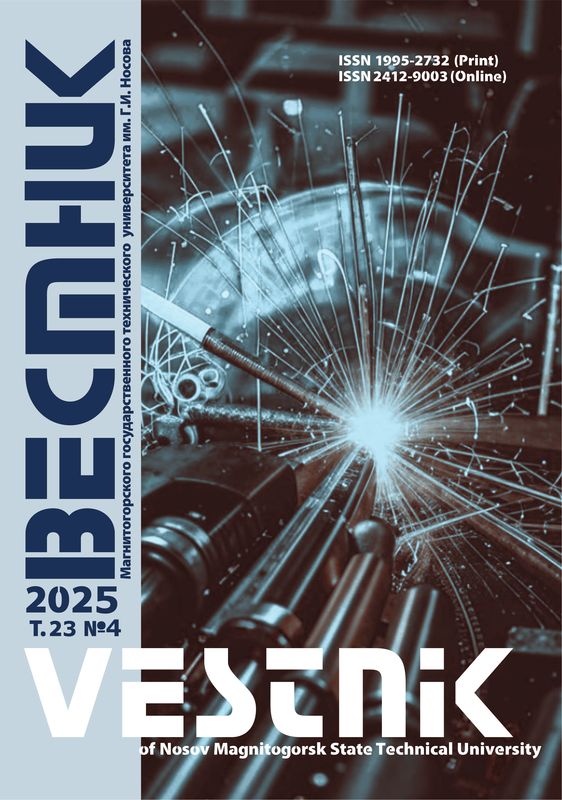DOI: 10.18503/1995-2732-2024-22-4-152-162
Abstract
The principles of decentralized group management are widely applied in modern industrial enterprise management approaches. These approaches provide for the transfer of a significant amount of functions from the highest management levels to enterprise divisions, which allows them to self-organize and improve the efficiency of decision-making and makes the opportunity to abandon centralized production planning at the operational level real. This approach contributes to a more flexible organization and automation of production processes, which improves the efficiency of the enterprise. The network-centric management system is based on the concept of a network-centric structure, which promotes the creation and efficient use of information by organization members to increase competitive advantage through the collaboration of flexible self-managing teams. Network-centricity itself represents a fundamental principle of organizing management systems, ensuring situational awareness. Within the network-centric approach, successful management involves maintaining the system in the most complete and accurate state, primarily by involving the maximum number of available sources of primary operational information. The study discusses the main principles of the network-centric management model and its benefits for the enrichment industry. This management model is used to improve coordination between different departments, optimize enrichment processes and improve product quality. Practical aspects of implementing network-centric management in the enrichment industry, including choosing the right technologies, training personnel, and managing change. In conclusion, the authors conclude that the network-centric management model has great potential to transform the enrichment industry, enabling organizations to work more effectively, productively and safely.
Keywords
мanagement systems, network-centric systems, Boyd cycle, Deming cycle, quality management system
For citation
Lontsikh P.A., Fedotova A.V., Golovina E.Yu., Lontsikh N.P., Evloeva M.V. Improving the Network-Centric Concept in Enrichment Production. Vestnik Magnitogorskogo Gosudarstvennogo Tekhnicheskogo Universiteta im. G.I. Nosova [Vestnik of Nosov Magnitogorsk State Technical University]. 2024, vol. 22, no. 4, pp. 152-162. https://doi.org/10.18503/1995-2732-2024-22-4-152-162
1. Kalyaev I.A., Kapustjan S.G., Gajduk A.R. Self-organizing distributed control systems for groups of intelligent robots based on a network model. Setevye modeli v upravlenii [Network models in management]. Moscow: Egves, 2011;57-89. (In Russ.)
2. Fedoseev S.A., Stolbov V.Yu., Pustovoit K.S. The model of group management in network-centric production systems. Upravlenie v tekhnicheskih, ergaticheskih, organizacionnyh i setevyh sistemah (UTEOSS – 2012): materialy 5-i Rossijskoj multikonferencii po problemam upravleniya [Management in technical, ergatical, organizational and network systems (UTEOSS - 2012): materials of the 5th Russian multiconference on management problems], St. Petersburg, October 9–11, 2012. St. Petersburg, 2012, pp. 1240-1243. (In Russ.)
3. Fedotova A.V., Lontsikh P.A., Kunakov E.P., Lontsikh N.P., The connection between the Deming cycle and the Juran quality spiral in developing the PDCA cycle and creating a network-centric management system. Kachestvo. Innovacii. Obrazovanie [Quality. Innovation. Education]. Moscow, 2023;(1):3-10. (In Russ.)
4. Suri R. Vremya – dengi. Konkurentnoe preimushchestvo bystroreagiruyushchego proizvodstva [Time is money. Competitive advantage of fast-response production]. Moscow: BINOM. Knowledge Laboratory, 2014, 326 p. (In Russ.)
5. Fedotova A.V., Lontsikh P.A. Stages of detecting and dealing with non-conforming products at industrial enterprises. Bajkalskaya nauka: idei, innovacii, investicii: sb. st. po mater. vseros. nauch.-prakt. konf. [Baikal science: ideas, innovations, investments. Proceedings of all-Russian scientific and practical conference], Irkutsk, November 10, 2022, pp. 61-65. (In Russ.)
6. Fedotova A.V., Lontsikh P.A. Problems of quality management at the enterprise. Bajkalskaya nauka: idei, innovacii, investicii: sb. st. po mater. vseros. nauch.-prakt. konf. [Baikal science: ideas, innovations, investments. Proceedings of all-Russian scientific and practical conference], Irkutsk, November 10, 2022, pp. 98-102. (In Russ.)
7. Kanban i «tochno vovremya» na Toyota. Menedzhment nachinaetsya na rabochem meste [Kanban and just-in-time at Toyota: Management begins at the workplace]. Moscow: Alpina Publisher, 2016, 214 p. (In Russ.)
8. Uyazvimosti perimetra korporativnyh setej [Vulnerabilities of the perimeter of corporate networks]. Available at: https://www.ptsecurity.com
9. Kostogryzov A.I. Ways to solve some problems of complex security using systems engineering methods. IT-Standart [IT-Standard], 2017;4(13):5-12. (In Russ.)
10. State standard GOST 34.601-90. Information technology. Automated systems. Stages of creation. Moscow: Standardinform, 2009. (In Russ.)
11. ISO 9241-220 Ergonomika vzaimodejstviya chelovek-sistema. Chast 220. Processy obespecheniya, vypolneniya I ocenki cheloveko-orientirovannogo proektirovaniya v organizacii [Ergonomics of human-system interaction. Part 220. Processes for enabling, implementing and evaluating human-centered design in an organization]. Available at: https://gostassistent.ru/doc/6b7b45b7-6861-4ad7-b331-29c9e5f7f42












